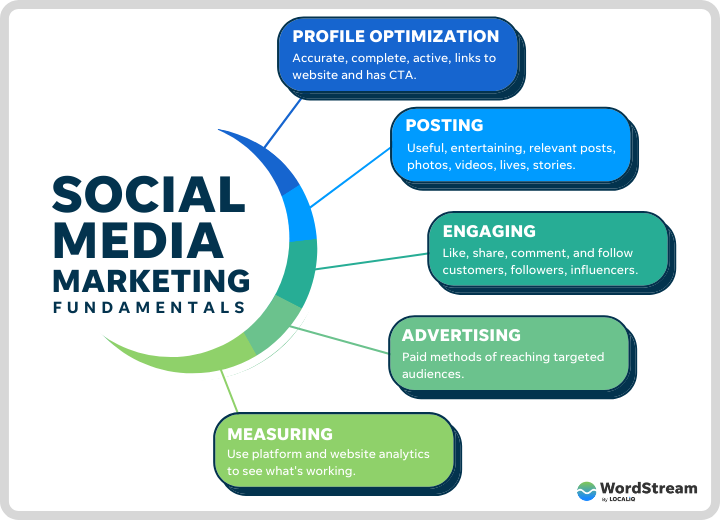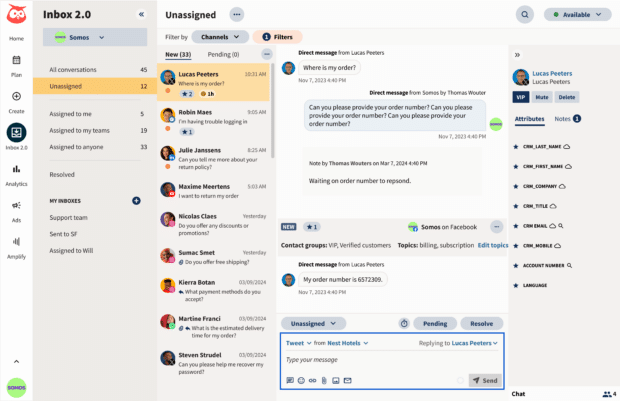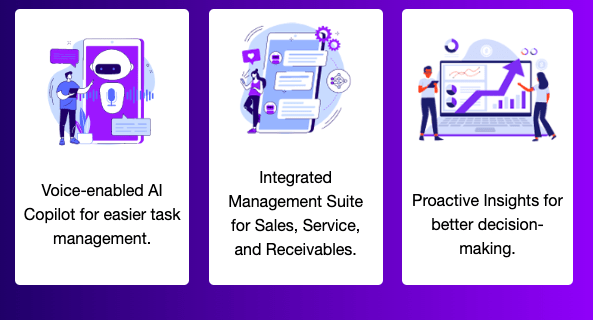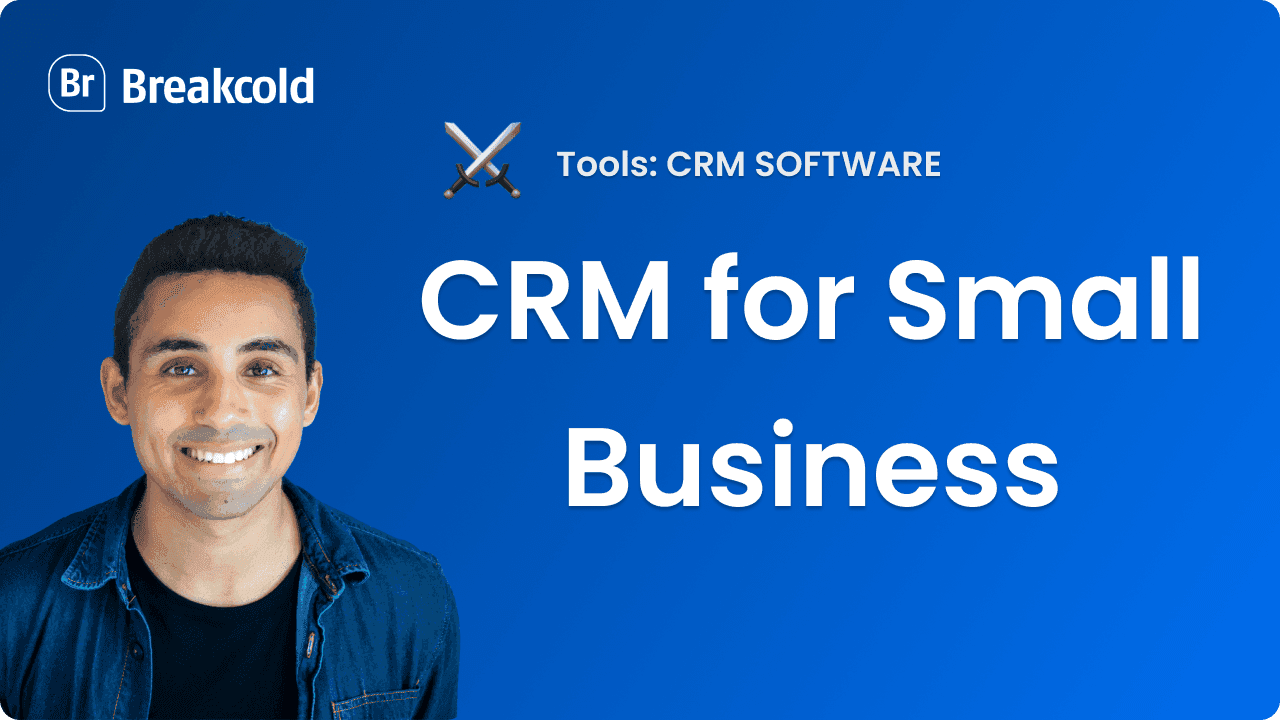
Mastering CRM Marketing: A Comprehensive Guide to Lead Nurturing for Explosive Growth
In today’s fast-paced digital landscape, the ability to cultivate leads and transform them into loyal customers is more crucial than ever. This is where the power of CRM marketing, particularly lead nurturing, comes into play. This comprehensive guide will delve deep into the world of CRM marketing and lead nurturing, providing you with the knowledge and strategies to build lasting customer relationships and drive significant business growth. We’ll explore the fundamentals, best practices, and advanced techniques that will empower you to create effective lead nurturing campaigns that convert.
What is CRM Marketing?
CRM, or Customer Relationship Management, marketing is a strategic approach that utilizes CRM software to manage and analyze customer interactions and data throughout the customer lifecycle. It’s not just about collecting data; it’s about using that data to understand your customers better, personalize their experiences, and ultimately, drive sales and build customer loyalty. CRM marketing encompasses a wide range of activities, including:
- Lead Generation: Attracting potential customers and capturing their contact information.
- Lead Qualification: Identifying and assessing leads based on their fit with your ideal customer profile.
- Lead Nurturing: Building relationships with leads and guiding them through the sales funnel.
- Customer Segmentation: Grouping customers based on shared characteristics to personalize marketing efforts.
- Personalized Communication: Delivering targeted messages and offers based on customer preferences and behavior.
- Sales Automation: Automating repetitive tasks to streamline the sales process.
- Customer Service: Providing excellent customer support to enhance satisfaction and loyalty.
The core of CRM marketing is understanding that every customer is unique. By leveraging the data stored in your CRM system, you can tailor your marketing efforts to meet the specific needs and interests of each individual customer. This level of personalization not only enhances the customer experience but also increases the likelihood of converting leads into customers and turning customers into brand advocates.
The Importance of Lead Nurturing in CRM Marketing
Lead nurturing is the process of building relationships with potential customers, also known as ‘leads’, throughout the sales funnel. It involves providing them with valuable information and support at each stage of their journey, from initial awareness to the final purchase decision. It’s about moving leads closer to a purchase decision by providing them with relevant and helpful content and interactions.
Why is lead nurturing so important? Here are a few key reasons:
- Increased Conversion Rates: Nurturing leads increases the likelihood of them converting into paying customers.
- Shorter Sales Cycles: Lead nurturing helps move leads through the sales funnel more quickly.
- Improved Customer Relationships: Building relationships with leads fosters trust and loyalty.
- Enhanced Brand Awareness: Consistent communication helps keep your brand top-of-mind.
- Greater Return on Investment (ROI): Nurturing leads is a cost-effective way to generate more sales.
In essence, lead nurturing is about creating a positive and helpful experience for your leads. It’s about providing them with the information they need, when they need it, in a way that resonates with them. This approach not only increases the chances of a sale but also helps build strong, long-lasting customer relationships.
Key Components of an Effective Lead Nurturing Strategy
Building a successful lead nurturing strategy requires a well-defined plan and the right tools. Here are the key components you need to consider:
1. Define Your Target Audience
Before you start nurturing leads, you need to know who you’re talking to. Create detailed buyer personas that represent your ideal customers. Consider their demographics, psychographics, needs, pain points, and buying behaviors. This will help you tailor your messaging and content to resonate with them.
2. Segment Your Leads
Not all leads are created equal. Segment your leads based on their behavior, demographics, and engagement with your content. This allows you to personalize your nurturing efforts and deliver more relevant messages. Common segmentation criteria include:
- Lead Source: Where did the lead come from (e.g., website, social media, event)?
- Demographics: Age, location, industry, job title, etc.
- Behavior: Website visits, content downloads, email opens, etc.
- Engagement: Level of interaction with your brand.
3. Create Valuable Content
Content is the fuel of lead nurturing. Create a variety of content formats that address the different stages of the sales funnel. This includes:
- Top-of-Funnel (TOFU): Blog posts, infographics, ebooks, and other content designed to raise awareness and educate leads.
- Middle-of-Funnel (MOFU): Webinars, case studies, product demos, and other content that provides more in-depth information and helps leads evaluate their options.
- Bottom-of-Funnel (BOFU): Free trials, consultations, and other content that encourages leads to make a purchase.
Ensure that your content is high-quality, informative, and relevant to your target audience. It should address their pain points, provide solutions, and position your brand as a trusted authority.
4. Automate Your Workflows
Automation is essential for scaling your lead nurturing efforts. Use your CRM software to create automated workflows that trigger based on lead behavior and segmentation. For example, you can set up automated email sequences that:
- Welcome new leads and introduce your brand.
- Deliver valuable content based on their interests.
- Nurture leads towards the next stage of the sales funnel.
- Prompt leads to take action, such as requesting a demo or making a purchase.
5. Personalize Your Communication
Personalization is key to creating a positive customer experience. Use the data stored in your CRM system to personalize your email subject lines, content, and offers. Address leads by name, reference their interests, and tailor your messaging to their specific needs.
6. Track and Analyze Your Results
Monitor the performance of your lead nurturing campaigns to identify what’s working and what’s not. Track key metrics such as:
- Open Rates: How many leads are opening your emails?
- Click-Through Rates: How many leads are clicking on links in your emails?
- Conversion Rates: How many leads are converting into customers?
- Sales Revenue: How much revenue is generated from your lead nurturing campaigns?
Use this data to optimize your campaigns and improve your results. A/B testing different subject lines, content, and calls-to-action can help you refine your approach and maximize your ROI.
Lead Nurturing Tactics and Strategies
There are numerous tactics and strategies you can employ to nurture your leads effectively. Here are a few of the most popular and successful:
1. Email Marketing
Email marketing is the cornerstone of most lead nurturing campaigns. Use automated email sequences to deliver valuable content, build relationships, and guide leads through the sales funnel. Segment your email lists to ensure that you’re sending the right message to the right people.
2. Content Marketing
Create a library of high-quality content that addresses the different stages of the sales funnel. Share this content through your website, blog, social media, and email newsletters. Use content to educate leads, build trust, and position your brand as a thought leader.
3. Social Media Marketing
Engage with your leads on social media by sharing valuable content, answering their questions, and participating in relevant conversations. Use social media to build brand awareness, generate leads, and drive traffic to your website.
4. Retargeting Campaigns
Retargeting campaigns allow you to show ads to leads who have previously visited your website or interacted with your content. This is an effective way to re-engage leads and remind them of your brand. These ads can be personalized based on the user’s previous behavior, making them more relevant and effective.
5. Webinars and Events
Host webinars and events to educate leads, build relationships, and generate qualified leads. Webinars are a great way to showcase your expertise and provide valuable information to your target audience. Events offer a more interactive and engaging experience, allowing you to connect with leads on a more personal level.
6. SMS Marketing
Use SMS marketing to send timely and relevant messages to your leads. This can include appointment reminders, promotional offers, and updates on new content. SMS messages have high open rates, making them a highly effective way to communicate with your leads.
Choosing the Right CRM Software
The right CRM software is essential for implementing a successful lead nurturing strategy. When choosing a CRM, consider the following factors:
- Features: Does the CRM offer the features you need, such as lead tracking, contact management, email marketing, and automation?
- Ease of Use: Is the CRM easy to use and navigate?
- Integration: Does the CRM integrate with your existing marketing tools and platforms?
- Scalability: Can the CRM scale to meet your growing business needs?
- Price: Is the CRM affordable for your budget?
Some of the most popular CRM platforms include:
- HubSpot CRM: A comprehensive CRM platform with a strong focus on marketing automation.
- Salesforce: A leading CRM platform with a wide range of features and integrations.
- Zoho CRM: A user-friendly CRM platform with a variety of features and pricing options.
- Pipedrive: A sales-focused CRM platform designed for small businesses.
- Microsoft Dynamics 365: A powerful CRM platform that integrates with other Microsoft products.
Research different CRM platforms and choose the one that best meets your business needs.
Measuring the Success of Your Lead Nurturing Campaigns
To determine the effectiveness of your lead nurturing campaigns, it’s important to track and analyze key metrics. Here are some important metrics to consider:
- Lead Conversion Rate: The percentage of leads who convert into customers.
- Sales Qualified Leads (SQLs): The number of leads who have been qualified by your sales team.
- Marketing Qualified Leads (MQLs): The number of leads who have engaged with your marketing content and are considered potential customers.
- Customer Acquisition Cost (CAC): The cost of acquiring a new customer.
- Return on Investment (ROI): The profitability of your lead nurturing campaigns.
- Website Traffic: The amount of traffic to your website.
- Email Open and Click-Through Rates: The percentage of emails opened and links clicked.
- Time to Conversion: The time it takes for a lead to convert into a customer.
- Customer Lifetime Value (CLTV): The predicted revenue a customer will generate over their relationship with your business.
By monitoring these metrics, you can identify areas for improvement and make data-driven decisions to optimize your lead nurturing strategy.
Common Mistakes to Avoid in Lead Nurturing
While lead nurturing can be incredibly effective, there are several common mistakes that can hinder your efforts. Here are some pitfalls to avoid:
- Sending Irrelevant Content: Ensure that the content you send is tailored to your leads’ specific needs and interests. Avoid sending generic or irrelevant messages.
- Over-Communicating: Bombarding leads with too many emails can lead to unsubscribes and a negative perception of your brand.
- Neglecting Personalization: Failing to personalize your communication can make your leads feel like they’re just a number.
- Not Tracking Your Results: Without tracking your results, you won’t be able to identify what’s working and what’s not.
- Ignoring Lead Behavior: Pay attention to how your leads are interacting with your content and adjust your strategy accordingly.
- Failing to Segment Your Audience: Sending the same message to all leads is inefficient and ineffective.
- Not Having a Clear Call to Action: Every piece of content should include a clear call to action, telling leads what you want them to do next.
- Poorly Designed Emails: Ensure your emails are visually appealing, easy to read, and mobile-friendly.
By avoiding these common mistakes, you can increase the effectiveness of your lead nurturing campaigns.
The Future of CRM Marketing and Lead Nurturing
CRM marketing and lead nurturing are constantly evolving, with new technologies and strategies emerging all the time. Here are some trends to watch:
- Artificial Intelligence (AI): AI is being used to automate tasks, personalize customer experiences, and improve lead scoring.
- Hyper-Personalization: Customers expect highly personalized experiences, and businesses are using data to deliver them.
- Omnichannel Marketing: Businesses are using multiple channels to communicate with customers, providing a seamless experience.
- Video Marketing: Video is becoming increasingly popular, and businesses are using video to engage leads and customers.
- Chatbots: Chatbots are being used to provide instant customer support and answer questions.
- Data Privacy: Data privacy is becoming increasingly important, and businesses need to be transparent about how they collect and use customer data.
Staying up-to-date with these trends will help you stay ahead of the competition and deliver exceptional customer experiences.
Conclusion: Empowering Your Business Through CRM and Lead Nurturing
CRM marketing and lead nurturing are powerful tools that can help you build strong customer relationships, increase sales, and drive business growth. By understanding the fundamentals, implementing best practices, and staying up-to-date with the latest trends, you can create effective lead nurturing campaigns that convert. Remember to define your target audience, segment your leads, create valuable content, automate your workflows, personalize your communication, and track your results. By avoiding common mistakes and embracing new technologies, you can empower your business to thrive in today’s competitive market. The journey to mastering CRM marketing and lead nurturing may require effort, but the rewards, in terms of customer loyalty and business success, are well worth it. Start implementing these strategies today, and watch your business flourish!




